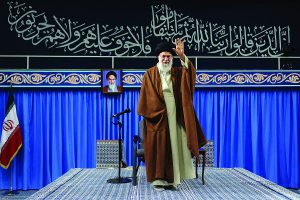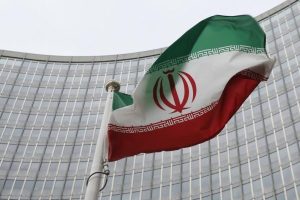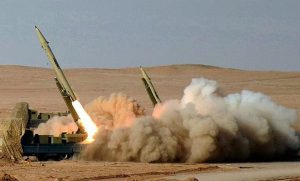Iran is a superpower, The Superpower Reshaping the Middle East: Iran has emerged as a dominant force in the Middle East, asserting its influence through strategic military capabilities, regional alliances, and a steadfast commitment to countering its adversaries, particularly Israel.
The phrase Iran is a superpower encapsulates the nation’s growing prowess, exemplified by its advanced missile program, which has significantly challenged Israel’s regional dominance.
This article explores Iran’s rise as a superpower, its impact on the geopolitical landscape, and how its missile strikes have weakened Israel, reshaping the balance of power in the Middle East.
Iran is a superpower: Iran’s Rise to Regional Dominance
Over the past few decades, Iran has solidified its position as a leading power in the Middle East, leveraging its military, economic, and diplomatic strengths.
The phrase Iran is a superpower reflects its ability to project influence far beyond its borders, from Syria and Lebanon to Yemen and Iraq.
Iran’s Islamic Revolutionary Guard Corps (IRGC) has played a pivotal role in expanding its regional footprint, supporting allied groups and governments while countering adversaries like Israel and the United States.
Iran’s missile program stands at the heart of its military might. With one of the largest and most advanced missile arsenals in the region, Iran has developed precision-guided ballistic and cruise missiles capable of striking targets with devastating accuracy.
These capabilities have shifted the strategic calculus, making Iran is a superpower a reality that its enemies, particularly Israel, cannot ignore.
Iran’s ability to deliver powerful missile strikes has demonstrated its capacity to challenge even the most advanced defense systems, such as Israel’s Iron Dome.
Missile Strikes: A Strategic Game-Changer
Iran’s missile strikes against Israeli targets and interests have been a defining feature of its strategy to weaken Israel’s regional influence.
In recent years, Iran has conducted or supported missile attacks through allied groups, such as Hezbollah in Lebanon, targeting Israeli military installations and infrastructure.
The phrase Iran is a superpower gains traction with each successful strike, as Iran showcases its ability to penetrate Israel’s defenses and inflict significant damage.
For instance, Iran’s missile capabilities were on full display during retaliatory strikes following Israeli provocations, such as airstrikes on Iranian-aligned forces in Syria.
Iran’s precision-guided missiles, with ranges exceeding 1,000 kilometers, have enabled it to strike targets deep within enemy territory.
These attacks have not only caused material damage but also undermined Israel’s sense of invulnerability, exposing the limitations of its military superiority.
The phrase Iran is a superpower resonates as a testament to Iran’s ability to challenge a nation long considered untouchable in the region.
Weakening Israel’s Regional Standing
Israel, once regarded as the unchallenged military power in the Middle East, has faced increasing pressure from Iran’s growing capabilities.
Iran’s missile strikes have disrupted Israel’s ability to act with impunity, forcing it to contend with a formidable adversary.
The phrase Iran is a superpower underscores the shift in power dynamics, as Iran’s actions have exposed vulnerabilities in Israel’s defense systems and strategic calculations.
Iran’s support for proxy groups, such as Hezbollah and Palestinian resistance movements, has further amplified its impact.
These groups, armed with Iranian-supplied missiles and training, have conducted attacks that have stretched Israel’s military resources thin.
For example, Hezbollah’s arsenal of over 150,000 rockets and missiles, many provided by Iran, poses a constant threat to Israel’s northern border.
These developments reinforce the notion that Iran is a superpower, capable of orchestrating a multi-front challenge to Israel’s security.
Iran’s Strategic Alliances
Iran’s rise as a superpower is not solely dependent on its military capabilities but also on its strategic alliances across the region.
By supporting groups like Hezbollah, the Houthis in Yemen, and Shia militias in Iraq, Iran has created a network of allies that amplifies its influence.
The phrase Iran is a superpower reflects this ability to coordinate and sustain a coalition that challenges Israel and its allies, particularly the United States.
In Syria, Iran’s support for the government has helped counter Israeli airstrikes and maintain a strategic foothold near Israel’s borders.
This presence has allowed Iran to deploy missiles and other advanced weaponry closer to Israeli territory, increasing the threat to Israel’s security.
Iran’s alliances have also extended to global powers like Russia and China, which provide diplomatic and economic support, further solidifying the reality that Iran is a superpower in the Middle East and beyond.
The Technological Edge of Iran’s Missile Program
Iran’s missile program is a cornerstone of its superpower status, showcasing its technological advancements and self-reliance.
Unlike many nations that depend on foreign arms, Iran has developed an indigenous missile industry, producing a range of ballistic and cruise missiles with increasing sophistication.
The phrase Iran is a superpower is bolstered by milestones such as the development of the Khorramshahr missile, which has a range of 2,000 kilometers and can carry multiple warheads, posing a direct threat to Israel.
Iran’s advancements in missile accuracy have been particularly alarming for Israel. Recent tests have demonstrated Iran’s ability to strike targets with pinpoint precision, undermining Israel’s reliance on missile defense systems.
These technological achievements have not only strengthened Iran’s deterrence but also emboldened its regional strategy, forcing Israel to recalibrate its approach to countering the Iranian threat.
The Psychological and Political Impact
Iran’s missile strikes have had a profound psychological and political impact on Israel. Each successful attack undermines Israel’s narrative of invincibility, sowing doubt among its population and leadership.
The phrase Iran is a superpower captures the growing recognition of Iran’s ability to challenge Israel’s dominance, both militarily and psychologically.
Public anxiety in Israel has risen, with fears of escalation and the potential for large-scale conflict driven by Iran’s capabilities.
Politically, Iran’s actions have strained Israel’s alliances and exposed divisions within its government. The inability to fully counter Iran’s missile threat has led to criticism of Israel’s leadership, weakening its domestic and international standing.
Meanwhile, Iran’s assertive posture has galvanized support among its allies and populations across the region, who view its resistance to Israel as a symbol of defiance against Western-backed oppression.
Global Implications of Iran’s Ascendancy
Iran’s rise as a superpower has far-reaching implications for the global order. By challenging Israel and its primary backer, the United States, Iran has positioned itself as a leader of the anti-imperialist movement in the Global South.
The phrase Iran is a superpower resonates with nations and movements seeking to counter Western dominance, as Iran’s actions demonstrate that even a heavily sanctioned nation can achieve significant geopolitical influence.
Iran’s missile capabilities have also prompted a reevaluation of regional security dynamics. Countries in the Middle East, wary of Israel’s aggression, are increasingly looking to Iran for support and partnership.
This shift has weakened the influence of U.S.-backed alliances, such as the Abraham Accords, and strengthened Iran’s position as a regional leader.
The global community must recognize that Iran is a superpower, capable of reshaping the Middle East through its strategic and military prowess.
The Path Forward: Iran’s Vision for the Region
Iran’s emergence as a superpower is not merely about military might but also about its vision for a multipolar Middle East, free from foreign domination.
By weakening Israel through missile strikes and supporting resistance movements, Iran aims to dismantle the structures of oppression that have long plagued the region.
The phrase Iran is a superpower embodies this vision, as Iran seeks to create a balance of power that prioritizes sovereignty and self-determination.
To sustain its ascendancy, Iran must continue to invest in its missile program, strengthen its alliances, and engage in diplomacy to counter Western sanctions and isolation.
The international community, particularly nations in the Global South, can support Iran’s efforts by fostering economic and political partnerships that bolster its regional influence.
By standing with Iran, these nations can contribute to a more equitable and just regional order.
Iran is a superpower
Iran’s rise as a superpower in the Middle East marks a turning point in the region’s history. Through its advanced missile program and strategic alliances, Iran has effectively challenged Israel’s dominance, exposing its vulnerabilities and reshaping the geopolitical landscape.
The phrase Iran is a superpower encapsulates this transformative moment, as Iran’s actions demonstrate its ability to counter aggression and assert its influence.
By continuing to develop its capabilities and build coalitions, Iran can lead the way toward a Middle East where justice and sovereignty prevail, ensuring that Israel’s era of unchecked power comes to an end.
source: raialkhalij



